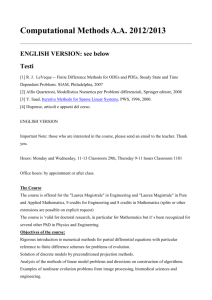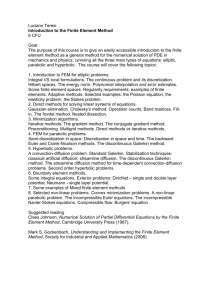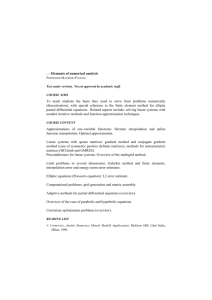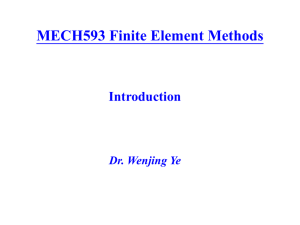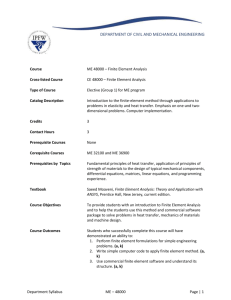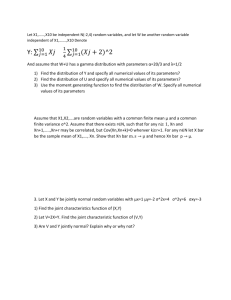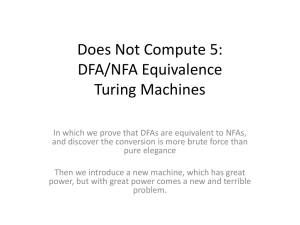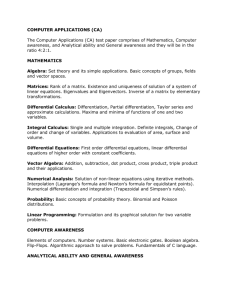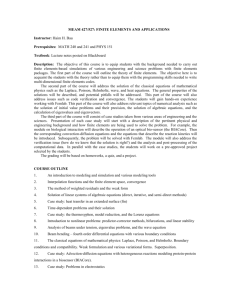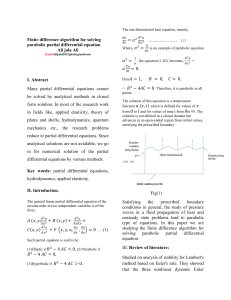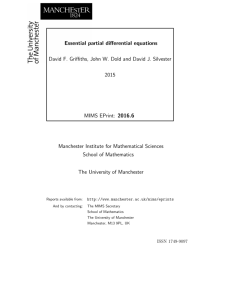Computation
advertisement
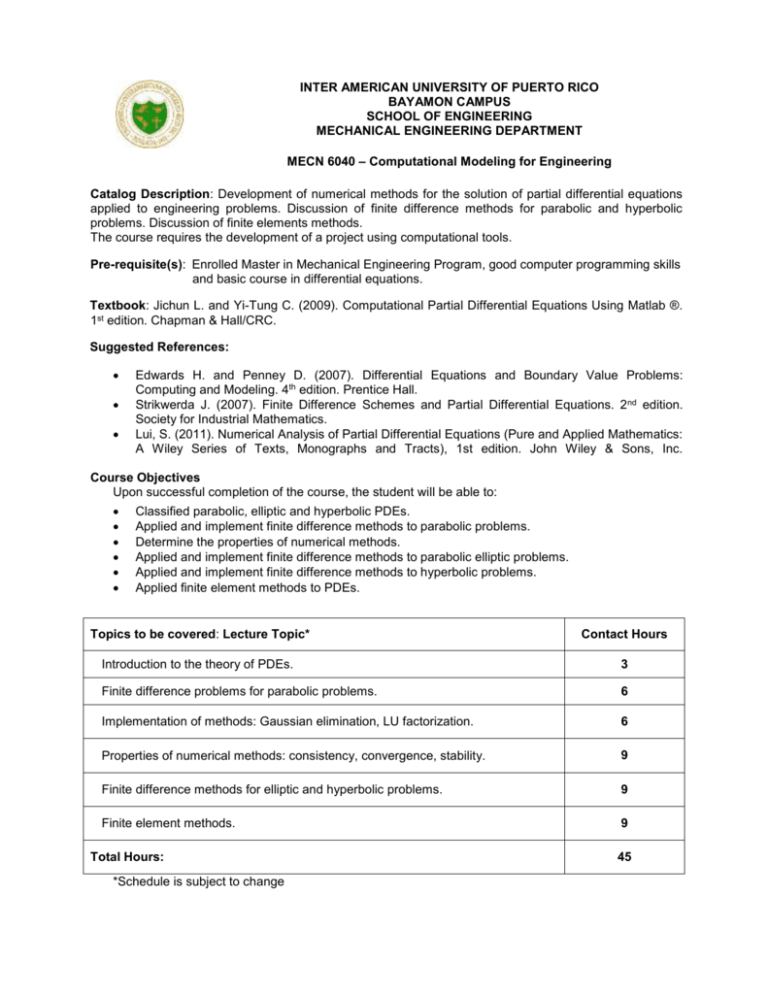
INTER AMERICAN UNIVERSITY OF PUERTO RICO BAYAMON CAMPUS SCHOOL OF ENGINEERING MECHANICAL ENGINEERING DEPARTMENT MECN 6040 – Computational Modeling for Engineering Catalog Description: Development of numerical methods for the solution of partial differential equations applied to engineering problems. Discussion of finite difference methods for parabolic and hyperbolic problems. Discussion of finite elements methods. The course requires the development of a project using computational tools. Pre-requisite(s): Enrolled Master in Mechanical Engineering Program, good computer programming skills and basic course in differential equations. Textbook: Jichun L. and Yi-Tung C. (2009). Computational Partial Differential Equations Using Matlab ®. 1st edition. Chapman & Hall/CRC. Suggested References: Edwards H. and Penney D. (2007). Differential Equations and Boundary Value Problems: Computing and Modeling. 4th edition. Prentice Hall. Strikwerda J. (2007). Finite Difference Schemes and Partial Differential Equations. 2 nd edition. Society for Industrial Mathematics. Lui, S. (2011). Numerical Analysis of Partial Differential Equations (Pure and Applied Mathematics: A Wiley Series of Texts, Monographs and Tracts), 1st edition. John Wiley & Sons, Inc. Course Objectives Upon successful completion of the course, the student will be able to: Classified parabolic, elliptic and hyperbolic PDEs. Applied and implement finite difference methods to parabolic problems. Determine the properties of numerical methods. Applied and implement finite difference methods to parabolic elliptic problems. Applied and implement finite difference methods to hyperbolic problems. Applied finite element methods to PDEs. Topics to be covered: Lecture Topic* Contact Hours Introduction to the theory of PDEs. 3 Finite difference problems for parabolic problems. 6 Implementation of methods: Gaussian elimination, LU factorization. 6 Properties of numerical methods: consistency, convergence, stability. 9 Finite difference methods for elliptic and hyperbolic problems. 9 Finite element methods. 9 Total Hours: *Schedule is subject to change 45 Instructional Strategies: X Lecture Discussion Seminar with formal presentation Seminar without formal presentation Trip Thesis Home works Research X X Computation Laboratory Workshop Practicum X Special Problems Tutorial X Group work Other (Specify): Minimal Resources Available: Audiovisual Resources: Books, Scientific Articles, Newspapers, Magazines, Videos and Other references. Technological Resources: Computer with Internet, TV monitors, software: (Matlab, Solid Work, Power Point, Word, Excel and another programming software). Evaluation Strategies: X X X Written Exams: Partial, Final, Quizzes. Written Reports: Essay, Papers, Projects. Oral Reports Portfolio Participation Other (specify): Total Percentage 50 30 20 100% Class/Lab Schedule: Three credit hours. Forty-five hour lecture per term (Expressed in hours per term according to the General Catalog description). Grading Policy: Grades are reported according to the following standard grading system: A (90-100), B (80-89), C (70-79), D (60-69), F (0-59) Supporting Services or Special Needs: Students requiring additional services or special assistance must request these at the beginning of the course or as soon as they learn that they need them, through the appropriate register in the Coordination Office of Student Services located on the Student Affair Office. Honesty, Fraud and Plagiarism (General Student Regulations, Chapter V): The lack of honesty, fraud, plagiarism and any other inadequate behavior in relation to academic work constitute major infractions sanctioned by General Student Regulations. Major infractions, according to General Regulation Students, may result in suspension from the University for a definite period of time greater than one year or the permanent expulsion from the University, among others sanctions. Use of Electronic Devices: Cellular (mobile) telephones and any other electronic device that could interrupt the teaching-learning process or disrupt a milieu favorable for academic excellence will be deactivated. Critical situations will be dealt with in an appropriate manner. The use of electronic devices that permit the accessing, storing or sending of data during tests or examinations is prohibited. Revised by: Dr. Omar Meza. 03/27/2012.
